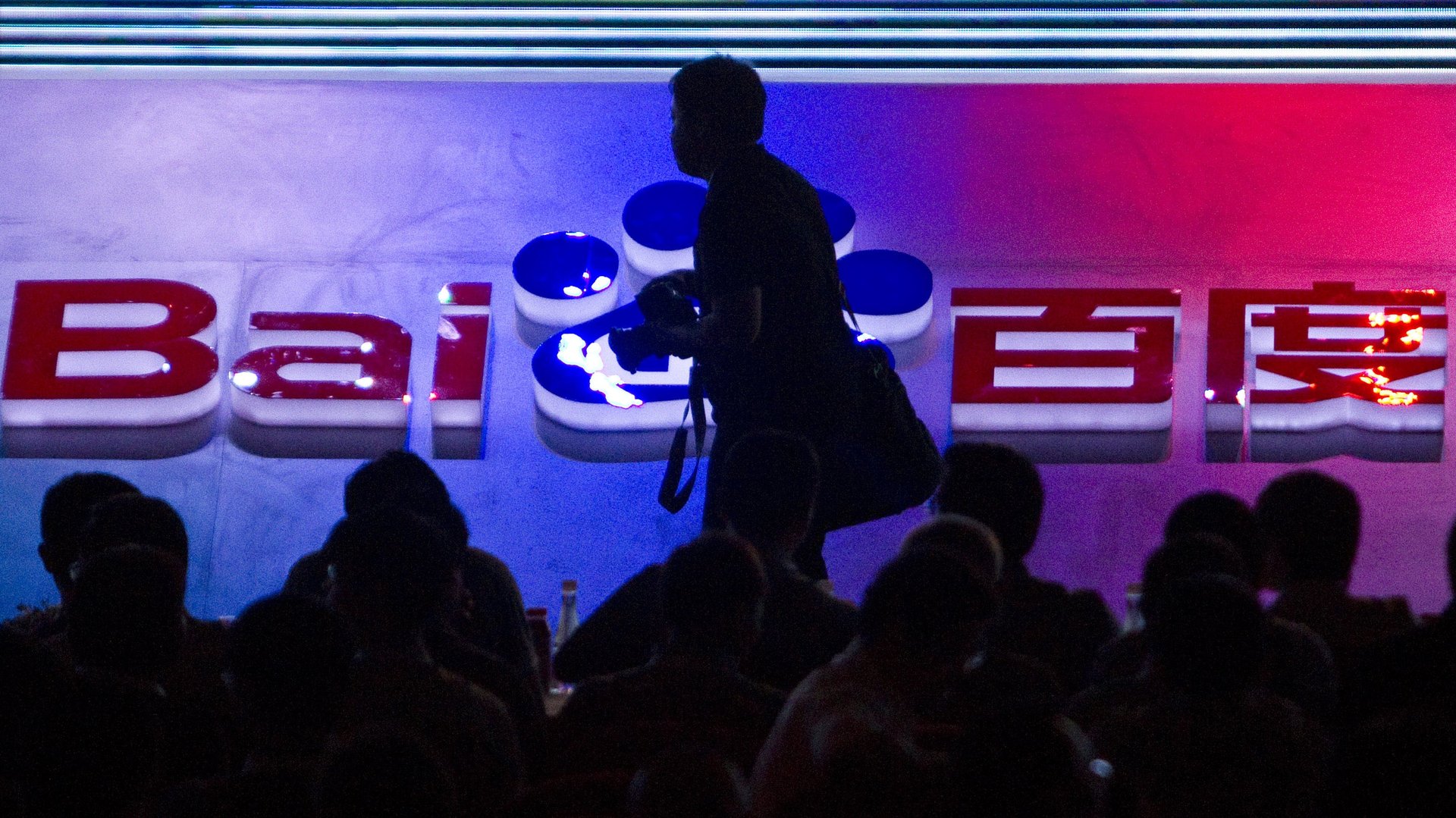Watch out, Google: Baidu now borrows more cheaply than the Chinese government
Baidu—China’s version of Google—announced its first ever bond issue today, selling a total of $1.5 billion in 5- and 10-year US dollar-denominated bonds. The price it paid for this cash? Ridiculously cheap by emerging-market standards: just 2.25% to borrow $750 million in bonds maturing in 2017, and 3.50% for the same amount maturing in 2022. By contrast, Chinese five-year government bonds are currently traded at 3.14%. That’s right: The Chinese government pays more to borrow than Baidu does.


Baidu—China’s version of Google—announced its first ever bond issue today, selling a total of $1.5 billion in 5- and 10-year US dollar-denominated bonds. The price it paid for this cash? Ridiculously cheap by emerging-market standards: just 2.25% to borrow $750 million in bonds maturing in 2017, and 3.50% for the same amount maturing in 2022. By contrast, Chinese five-year government bonds are currently traded at 3.14%. That’s right: The Chinese government pays more to borrow than Baidu does.
Baidu is not alone in taking advantage of the changing global economy, where typical “safe assets” like US and German bonds yield next to nothing, and old stable bets like Italy and Spain have suddenly become risky. Investors looking for anything in between have been forced to turn to emerging markets, and to emerging-market giants like Baidu: stable compared to failing corporates in Europe, and profitable compared to anything on US soil.
And these companies are taking advantage, bringing in record amounts of new cash to pursue M&A deals and expand their businesses. Analysts speculate that Baidu will use the money to make global acquisitions and take on Google, something it has already begun to do in Thailand and Vietnam.
In April, the same trend allowed South Korean electronics manufacturer Samsung to borrow $1 billion for five years in its first bond issue since 1998, at just 80 basis points (0.8 percentage points) over US Treasury bonds. As with Baidu and China now, the South Korean government was paying more than Samsung did: 150 basis points, leading local newspapers to proclaim that Samsung was more powerful than the government. Samsung said it would use the money to build another chip factory in the US, taking advantage of the low rate environment to issue bonds rather than raise the funds through its own cash flow.
This isn’t just happening in Asia. In Brazil, mining company Vale, cement firm Votorantim Cimentos, and construction company Odebrecht each issued hundreds of millions of dollars in 30-year bonds this year, at yields which assume that inflation will stay low pretty much for the duration of the bond. Bloomberg pointed out that “an investor holding $10 million of Rio de Janeiro-based Vale’s 5.625 percent securities due 2042 would incur a loss of $525,000 if yields climbed to 5.5 percent from 5.16 percent now.”
The growing demand for emerging-market corporate bonds has pulled down the spread: the interest these companies are paying over US Treasuries of the same maturity. They’re still not down at the spreads that rich-world firms enjoy, but the gap is narrowing.

This trend is—albeit slowly—fundamentally changing the global corporate power structure. While US corporations remain powerful, money that once went to Europe is now flowing south and east, and emerging-market companies are taking advantage of this cheap funding to grow their operations, taking up a bigger slice of the global pie.
What’s more, they’re often borrowing for the long-term. This means that even if risk appetite dries up for a while—if emerging markets start looking less attractive again—they’ll still have consistent funding. Companies that have never had access to this kind of cheap money are not only getting it, but getting it for long periods of time.
In other words, simply by looking for a better yield, investors could be helping seed a larger power shift towards a truly global economy.